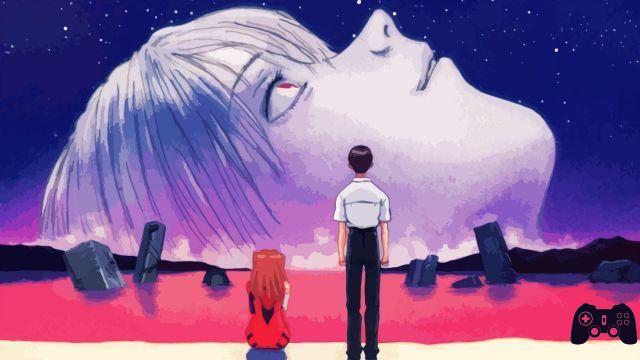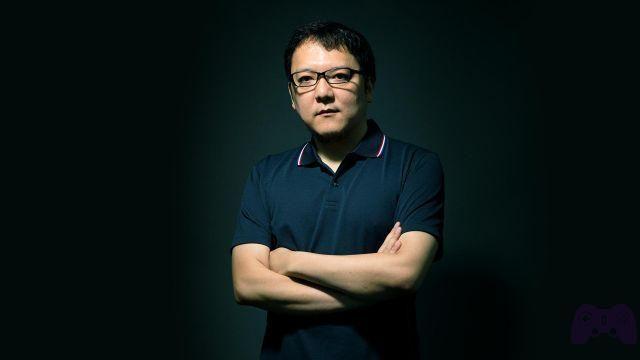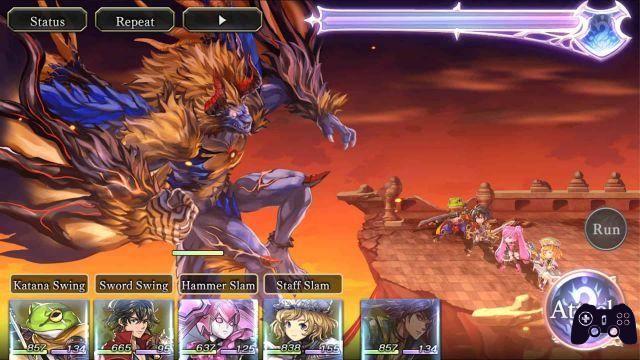
Sam and Shinji, Fragile and the Porcupine Paradox, Kojima and Anno.
Death Stranding and Evangelion
After the spoiler article on the ending of Death Stranding, perhaps the time has come to deepen what were the works, authors and ideas that may have influenced Hideo Kojima in his creative process, first of all Neon Genesis Evangelion, of Hideaki Anno.
Kojima, in this sense, has always been a lot transparent: his Instagram and Twitter accounts have been collecting for years all his passions, his influences and, why not, even the advice for purchases aimed at his followers.
Once, there was an explosion, a bang which gave rise to life as we know it. And then, came the next explosion. An explosion that will be our last.
Death Stranding PrologueThese are the first words that Sam Porter Bridges pronounces in the incipit of Death Stranding. The mind can only go back to 1995, and that Second Impact with which the characters of Neon Genesis Evangelion they had to do the math. The first real similarity between the works of Hideo Kojima e Hideaki Anno it is served to us on a silver platter: in both worlds there has been an explosion, and that explosion has brought humanity to the brink of extinction.
The few survivors have perched in fortress-cities, while the rest of the world is constantly threatened by creatures from other worlds; the BTs on one side and the Angels (or Apostles, if you prefer) on the other.
In both works, however, there is a greater danger: the next explosion. In Evangelion and Death Stranding the protagonists are not only committed to trying to understand the cataclysm that has already occurred, but they must also give body and soul to avoid repetition, because in both cases the Third impact or Last Stranding would lead the human race to perish definitively.
Sam, get on the EVA
Noticed anything? All these similarities between Evangelion and Death Stranding and do I really have to think that the “porcupine” quills of Fragile's suit are a coincidence?

Sat he is immediately presented to us as a closed and introverted character, as well as suspicious. The image that is given to us is that of a lonely and very tough man, but the reality is that Sam Porter Bridges it's a man fragile e ferito. So frail that he has a phobia of human contact (contact with another person's hands leaves bruises on his skin) and so hurt because he lost his wife and daughter to a voidout. The impression he gives of himself on a closer look is that of a man who works as a courier only to be able to escape from contact with other people; in a collapsing world, he prefers the isolation and risks of his profession to cities.
Just like Shinji ikari, Sam undergoes events. Neither of them ever wanted to be a protagonist, indeed, they never cared about the fate of the world or of the human race. They accept the mission that is imposed on them from above by Gendo and Die-Hardman in a completely passive way; they are not interested in anyone's salvation but are still obliged to deal with an enormous responsibility.
The world lied to them and hurt them, and they both shut down hedgehog to prevent other disappointments and other injuries.
Reconnecting the world, for Hideo Kojima, means fighting this closure
It means going beyond that barrier that we have built around ourselves and defeating the fear of contact with others.
After all, only cooperation with others can save us, and the time has come to look into the eyes of that terrible phobia of touching the hands of others and destroying it.
All this with just one pad in hand.

The End of EvanStranding

To learn more:
I feel ashamed of writing a review for Death Stranding
The (almost) ending of Death Stranding is a moment with an emotional charge incredible, like the ending of Evangelion. Beyond what may be cross-references to the codec call with Campbell's AI in Metal Gear Solid 2, the expressive power of that scene has few rivals in the medium.
Sam has finally reached the beach from which Amelie, the sixth Extinctive Entity, is preparing to unleash the last great mass extinction. We observe Amelie shedding tears of blood as she confides the truth about herself and her nature, while behind her stands the huge figure of planet Earth about to be devoured by the BT antimatter.
The sea of Amelie beach is as red as blood, and where the red water meets the sand there is an expanse of beached cetaceans now lifeless. His world is a lifeless world, from which Sam can witness the end of time from the front row. But there is a moment when Amelie does something totally unexpected: let us decide.
At that moment it becomes clear that that beach and that lifeless red sea of Death Stranding are not just a quote to the aesthetics of The End of Evangelion. Kojima is not paying homage to Anno, he is repeating his message and adapting it to the videogame language.
Amelie hands us over a revolver and tells us that we can choose to stop his crazy ride.
And it weighs, fuck how much that revolver weighs.
The tiredness that is felt on him at that moment is tremendous. That revolver weighs more than all the packages that Sam has loaded on his shoulder carrying them from one coast to another in America. Just as happens to Shinji, Sam finds himself holding in his hands what can save humanity or, alternatively, what can end that world of suffering. Like Shinji Ikari who aboard theEva 01 gets the powers of a god and can choose to reach the perfection of man, extinguishing life as we have always conceived it.
The player finds himself able to exercise the most powerful form of free will.
Kojima and Anno have allowed us to choose and exercise the greatest form of free will conceivable
Just as the eyes of the whole world are on Shinji during the Third Impact, I felt observed as I pointed the revolver at Amelie. I felt the full weight of the road traveled to get to that point, and I felt the weight of the responsibility that was entrusted to me.
Misunderstood visionaries.
When Hideaki Anno set to work creating Evangelionprobably did not imagine how important his work would become in Japan and in the world. Although both Neon Genesis Evangelion and The End of Evangelion are today recognized as timeless masterpieces, Anno and Studio Gainax they had to suffer a long series of very aggressive criticisms. The original series had a cryptic, surreal and, according to some, incomprehensible ending. This led to fierce criticism of Anno's work, as well as pressure from fans who did not appreciate the series closing and who stomped their feet because they demanded an ending that concluded all the narrative arcs left in suspense.
Anno said he created Evangelion to communicate to all the Otaku that outside their homes there was a world to discover and a life to live. He asked us to to cooperate, to seek dialogue, to open up.
The response of some were threatening letters, death threats and vandalism against Studio Gainax. And do you know why? Because we have required a creative to bow to our will. We assumed that Anno's work was that of satisfy us and not to create freely.
Similarly, today, we see a large slice of the public that rants against Kojima and Death Stranding because it considers them guilty of not having entertained them enough, regardless of the message that the author has delivered into the hands of his work. We have responded to the invitation to unite and cooperate to defeat loneliness, sadness and hatred with insults, hatred and intolerance. Fortunately not all.

We have to learn to stay in our place.
The times, it seems, are not yet ripe. We have not yet understood and accepted that theArt do the Authors, and that the Authors are not at our service.
We can choose to ignore them, not to listen to their words and to continue to consider them as juke boxes in the flesh that must create products that satisfy us. We can even continue to fill our mouths with big words despite not even being able to distinguish the message, language and style of a given author, but we will continue to not be right.
But I will remember your faces and your names when, in a few years, Death Stranding will be re-evaluated, just like it happened to Evangelion.
And I will embrace you, because this is what Hideaki Anno and Hideo Kojima tried to teach me.






